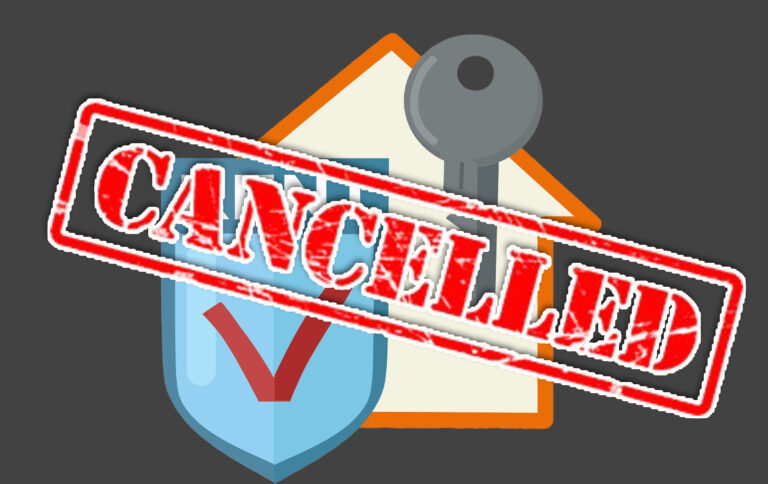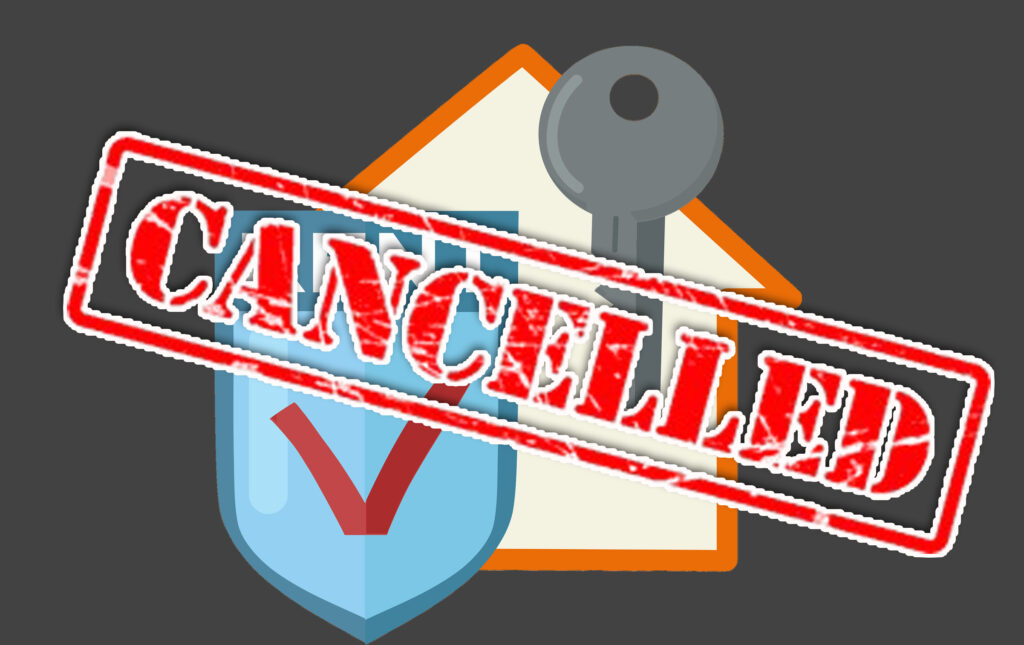
Why did my renters insurance get cancelled? Renters insurance is a safety net for tenants, offering protection against unexpected events such as theft, fire, or water damage.

For many renters, this affordable coverage offers peace of mind by safeguarding their personal property and providing liability coverage in case of accidents. However, it can come as a surprise when you receive a notice that your renters insurance policy has been cancelled.
Insurance companies don’t cancel policies without cause; these cancellations often stem from violations of policy terms, failure to meet payment obligations, or significant changes in your living situation.
This article explores common reasons renters insurance policies get cancelled and what you can do to fix the situation.
Missed Or Late Payments
One of the most common and straightforward reasons for a renters insurance cancellation is your failure to pay premiums on time. What’s more, the insurance companies operate based on regular premium payments, and any disruptions in this financial agreement can result in termination.
Some reasons under missed or late payments include:
- Repeatedly missing monthly payments or paying late, even after grace periods.
- Insufficient funds in your bank account during auto-pay transactions.
- Failure to respond to notices of non-payment or payment reminders.
If your policy is cancelled for non-payment, it’s important that you contact your insurer immediately. Some companies offer reinstatement options if you act quickly. Otherwise, you’ll need to purchase a new policy,potentially at a higher rate, due to the cancellation record.
Misrepresentation or False Information
When you are applying for renters insurance, it’s crucial you provide accurate and truthful information. Any misleading data can result in cancellation either shortly after approval or even during an active claim.
Some examples of misrepresentation:
- Providing false details about your address, building type, or occupancy status.
- Underreporting the value of possessions or falsely claiming high-value items.
- Not disclosing pets, roommates, or renovations that affect the risk level.
Insurance fraud or misrepresentation undermines trust and violates legal terms of the policy. If you’re unsure about how to answer questions during your application, ask your insurance agent for clarification instead of guessing.
High Number of Claims Filed
Filing too many claims within a short period can signal to the insurance company that you’re a high-risk customer. Even if each claim is valid, excessive claims may lead insurers to cancel your policy to avoid future losses. Some situations that leads to this are:
- Frequent theft claims, especially if you live in a high-crime area.
- Water damage claims that suggest plumbing or structural issues in your unit.
- Fire or smoke claims, particularly if caused by negligence.
To avoid this issue, it’s often best to only file claims for significant losses. For minor damages or losses, consider covering the cost out of pocket if it doesn’t exceed your deductible.
Changes in Risk or Property Conditions
Your renters insurance is partly based on the risk level of your rental unit and building. If there’s a significant change that increases the likelihood of loss, your insurer may decide to cancel your policy. Some examples of this risk include:
- Adding a dog breed considered dangerous by the insurer.
- Your building no longer meets fire safety standards.
- New activities, like starting a home business, that increase liability risk.
If you plan to make changes that may impact your policy, notify your insurer first. They may adjust your coverage or suggest alternative policies that better fit your new situation.
Non-Renewal vs. Cancellation
It’s important to distinguish between a policy cancellation and non-renewal. Cancellation happens during the active policy term, while non-renewal means the company has chosen not to renew your policy once the current term expires.
Common reasons for non-renewal include:
- Changes in company policy regarding certain neighborhoods or building types.
- Reassessments of your claims history or risk profile.
- Company decision to exit a specific insurance market or state.
If your policy isn’t being renewed, the company must notify you in advance (usually 30 to 60 days). This eventually gives you time to shop for new coverage and avoid a lapse.
Frequently Asked Questions
Can I Reinstate My Renters Insurance After Cancellation?
Yes, you can, but it depends on the reason for cancellation. If it was due to non-payment and you act quickly, your insurer might reinstate it after receiving payment. However, in some cases of fraud or excessive claims, reinstatement is unlikely.
Will A Cancelled Renters Insurance Policy Affect My Credit Score
Renters insurance isn’t reported to credit bureaus. However, if unpaid premiums are sent to collections, it can negatively impact your credit.
Can I Switch To Another Insurance Company After Cancellation?
Yes, you can shop for a new policy. However, keep in mind that a cancellation on your record may raise red flags with other insurers, potentially increasing your premiums or limiting coverage options.